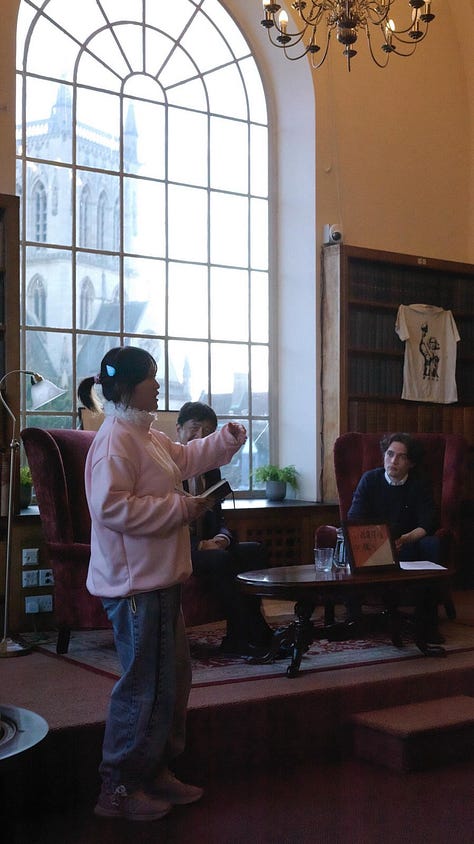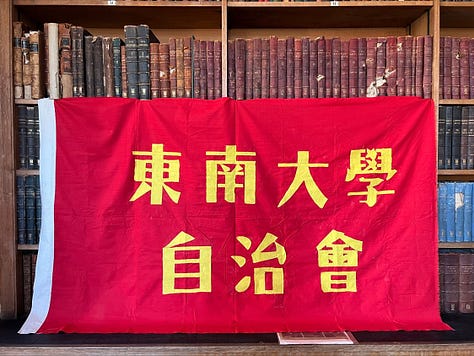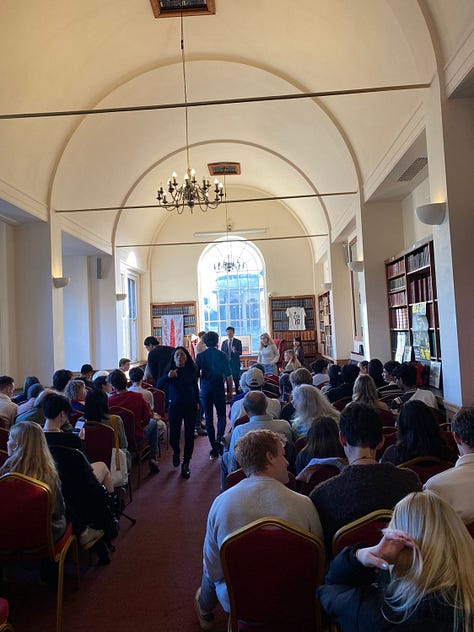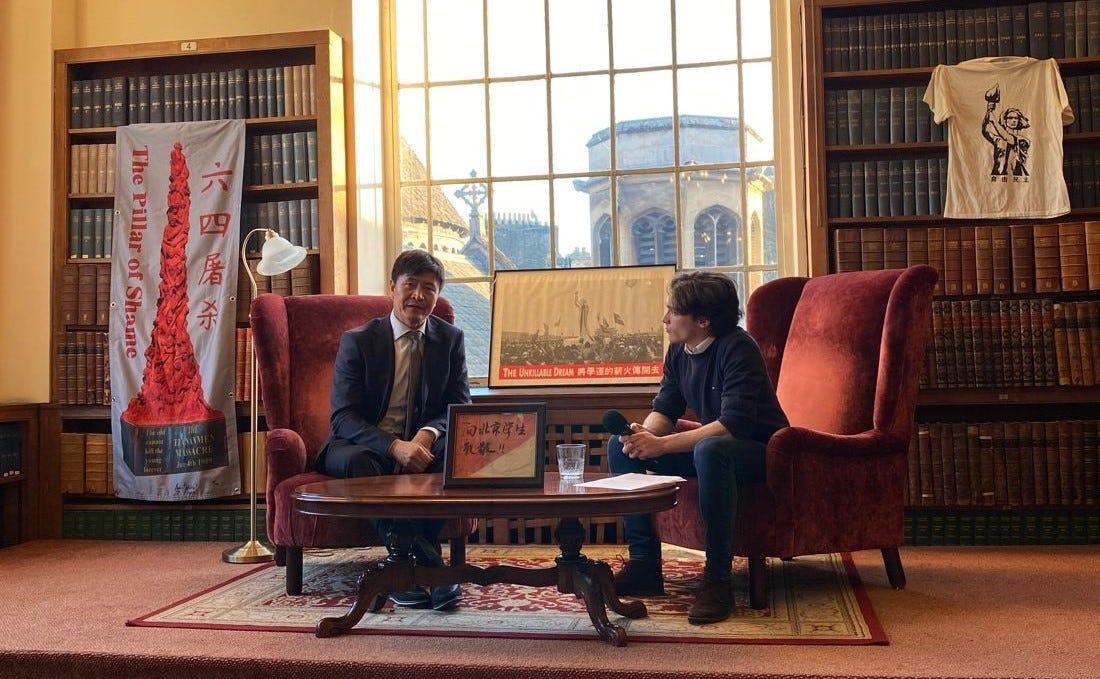Last week, at the Cambridge Union, HRIC’s Executive Director Fengsuo Zhou shared his personal experiences from the 1989 Tiananmen Square protests and discussed ongoing human rights issues in China. The event, supported by members of the Chinese, Hong Kong, and local Cambridge communities, was a full house, illustrating strong interest and support for these critical topics.
Zhou displayed artifacts and historical items, such as a blood-stained shirt and Dongnan University's flag from 1989, which highlighted the severity and reality of the events that occurred during that time. After almost 35 years, these pieces of evidence are now displayed at the Cambridge Union Society. In his talk, Zhou emphasized his personal commitment to advocating for those silenced by oppression, stating, “It is my duty to speak for those who cannot.” He recounted the vast support for democratic movements in Beijing during 1989, noting, “Beijing’s population was less than 10 million at that time, but millions of people showed up in support.” Zhou highlighted the internal dissent against the government crackdown, including support from unexpected quarters such as the military, where "I had soldiers coming to us every day on Tiananmen Square to show support to the protesters, although it was dangerous for them."
Reflecting on the stark contrasts of the time, Zhou reminded the audience of both the extreme measures taken by the regime and the poignant acts of courage by ordinary citizens, such as the iconic Tank Man. He conveyed the gravity of the violence, questioning how one could tolerate a regime capable of such crimes. Zhou also criticized past international responses, revealing, “President Bush sent a special envoy to Deng Xiaoping to support CCP regime when it was still shaking from the bloody crackdown, as revealed in the latest documents.” He argued for the relevance of these historical insights today, asserting that the international community outside China can influence positive changes within.
The talk concluded on a note of solidarity and action, with Zhou calling for ongoing attention to the Tiananmen Mothers and support for overseas Chinese dissidents. His message underscored the importance of global awareness and involvement in advocating for human rights. Let's carry forward the spirit of Tiananmen, not just as a memory, but as a movement towards greater accountability and freedom. Join us in supporting the voices that strive for change and remember those who dare to stand up against oppression.











